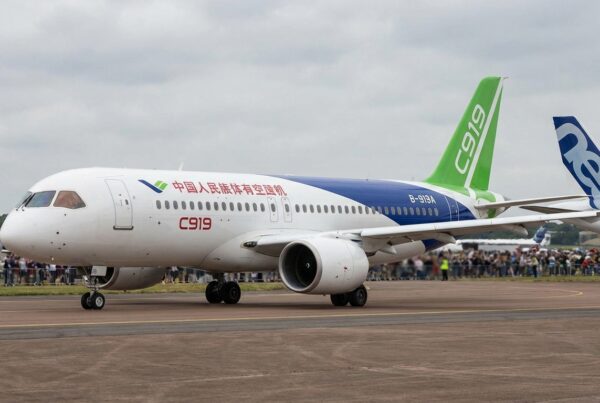The race to satellite broadband between private powers and public players is turning into a strategic duel in which Europe intends to reassert its place. The announcement of cooperation between Airbus, Thales and Leonardo is arousing the interest of airlines, aircraft manufacturers and passengers alike, who are waiting for a on-board connectivity faster, more reliable and compliant with European standards.
Why this alliance is a game-changer for space broadband
According to Flywest, the creation of a European joint venture, provisionally named Project BromoThe aim of this consortium is twofold: to offer a credible commercial alternative to foreign constellations, and to protect a strategic capability considered essential for transport, defense and critical infrastructures. By pooling the skills of Airbus in satellite manufacturing, Thales in communications systems and Leonardo in integration, the consortium aims to accelerate the deployment of a multi-orbital network tailored to the needs of the aviation sector.
A technical response to current constraints
Today, the market is dominated by players who have invested heavily in low-orbit constellations. The European approach relies on a combination of orbits, smart antennas and inter-satellite links to reduce latency while increasing the available bandwidth to 35,000 feet. For companies, this means the prospect of offering a In-flight Wi-Fi quality comparable to terrestrial, to better meet the growing demand for streaming and professional services in the cabin, and to integrate these solutions into new aircraft over the long term.
A commercial positioning designed for aviation
Flywest emphasizes that aviation is a strategic market: passengers, crews and ground operations demand secure, high-performance connectivity. The project will focus on offerings specially designed for the airline industry, with guarantees of service continuity beyond pure performance, easy integration by aircraft manufacturers and solutions adapted to on-board installation constraints.
What is Project Bromo and what are its priorities?
Project Bromo sees itself as an integrated European platform. According to Flywest, the stated priorities are the production of telecoms satellites, the development of high-efficiency on-board antennas, the creation of a back-office for traffic management, and the proposal of targeted commercial offers for governments, airlines and network operators. The project also promises particular attention to data security, operational resilience and compliance with European regulations.
Industrial and economic ambitions
Beyond connectivity, the initiative aims to consolidate an industrial fabric in Europe: supply chains, maintenance centers and data centers located on the continent. Flywest notes that this industrial component contributes directly to the objective of digital sovereignty and industry, by limiting dependence on non-European solutions for services that have become critical.
Expected impact for airlines and passengers
For airlines, the emergence of a European offering potentially means more pricing options, more balanced negotiation and solutions that comply with European privacy requirements. Passengers could benefit from a more stable connection, reduced latency for video calls and access to streaming entertainment services without frequent interruptions. Flywest anticipates that the gains will be both commercial - improved customer satisfaction, new sources of on-board revenue - and operational, through improved communications between aircraft and control centers.
Competition with Starlink: what's at stake?
The opponent often mentioned in debates is Starlinkwhich accelerated the adoption of low-orbit broadband. The European initiative is not intended to copy these models, but to offer a competitive alternative based on safety, regulation and industrial integration. Flywest points out that competition should stimulate innovation and reduce costs, but that it also raises questions of regulatory coordination, access to frequencies and technical interoperability between constellations.
Key information
Tentatively named project Project Bromo supported by Airbus, Thales and Leonardo. Objective: to create a European alternative capable of supplying satellite broadband multi-orbit for civil and strategic markets, with a particular focus on the on-board connectivity aircraft.
Key issues: guaranteeing European sovereignty in terms of connectivity, offer solutions that comply with security and data protection standards, and provide offerings specifically tailored to the needs of airlines and passengers.
Impact for the airline industry: access to more robust, low-latency connection services, commercial opportunities for airlines, simplified integration by aircraft manufacturers and stimulation of innovation in on-board systems.
Time perspective: gradual deployment expected, with industrial and regulatory milestones to be passed before full-scale commercial operation. Flywest is following the dossier as a key element in the future of connectivity and air transport in Europe.




